Kaiser Permanente plans to expand free emergency bleeding control classes that show how to use a tourniquet, apply direct pressure, and pack wounds after an accident or assault.
Volunteer instructors are being recruited to teach Stop the Bleed ® courses to Kaiser Permanente clinical and non-clinical employees at all 21 medical centers in Northern California. The goal is to have at least one trainer at each medical center by November of this year, said Shakiara Kitchen, Regional Emergency Management program manager.
After an initial rollout for employees, the classes will be available to the public some time in 2025, she said. The training has been offered to the public at the Vacaville and South Sacramento medical centers since 2015.
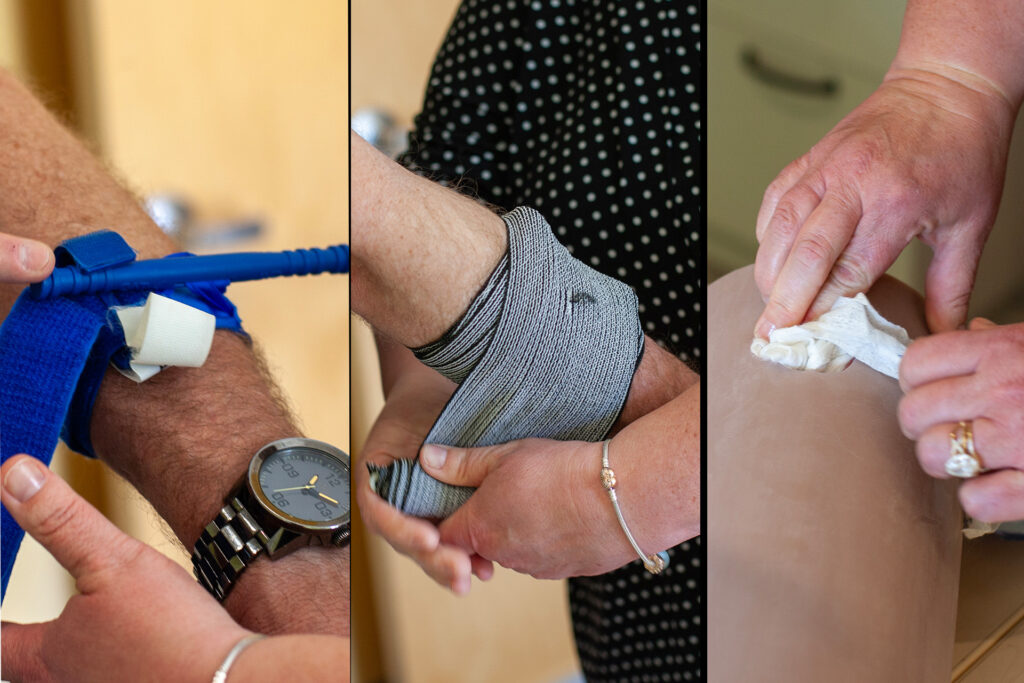
Easy-to-learn skills
“Learning how to stop bleeding is important because it allows you to feel empowered to help when you see a traumatic event unfolding in front of you,” said Kitchen. “If you have the proper education and you feel comfortable to do so, you can help save a life.”
The 90-minute course is offered nationwide and is overseen by the American College of Surgeons and licensed by the U.S. Department of Defense. It started in 2015.
“Teaching people proper hemorrhage control is important to saving lives during a disaster, such as an active shooter event, bombing, or multi-casualty incident,” said Calvin Kong, MD, Kaiser Permanente regional chair of Emergency Management and an emergency room physician at the San Leandro Medical Center. “These skills are easy to learn, and their application helps save lives.”
Since 2015, Evan Edminster, trauma clinical education, injury prevention, and outreach coordinator at the Kaiser Permanente Vacaville Medical Center, has trained more than 5,100 people through the program to stop bleeding.
Most common cause: Household accidents
The most common causes of wounds that require someone to know how to stop bleeding are from household accidents, such as falls, knife cuts from preparing food, or the use of power tools. Outside the home, common accidents are car and motorcycle crashes, followed by pedestrians being hit by cars, bicycle accidents, and physical assaults, said Edminster.
He trains all kinds of groups, from gun clubs to church groups to most of the police departments in the San Francisco Bay Area.
It’s an important skill to have because in an accident where someone is bleeding, they can die before paramedics arrive, Edminster said.
He explained that when a person reports an emergency with bleeding to 911, the call goes to a central area dispatcher, then it’s relayed to a local police and fire department dispatcher who, in turn, sends the paramedics. That process can take 4 to 8 minutes for a professional to arrive and start life-saving measures, longer if you’re in a rural area or in the country, he said.
“People need the training because a person can die in 3 to 5 minutes if they have damage to an artery,” he said. “There are an endless number of injuries that can cause bleeding, so the reality is you are going to need this knowledge at some time in your life.”
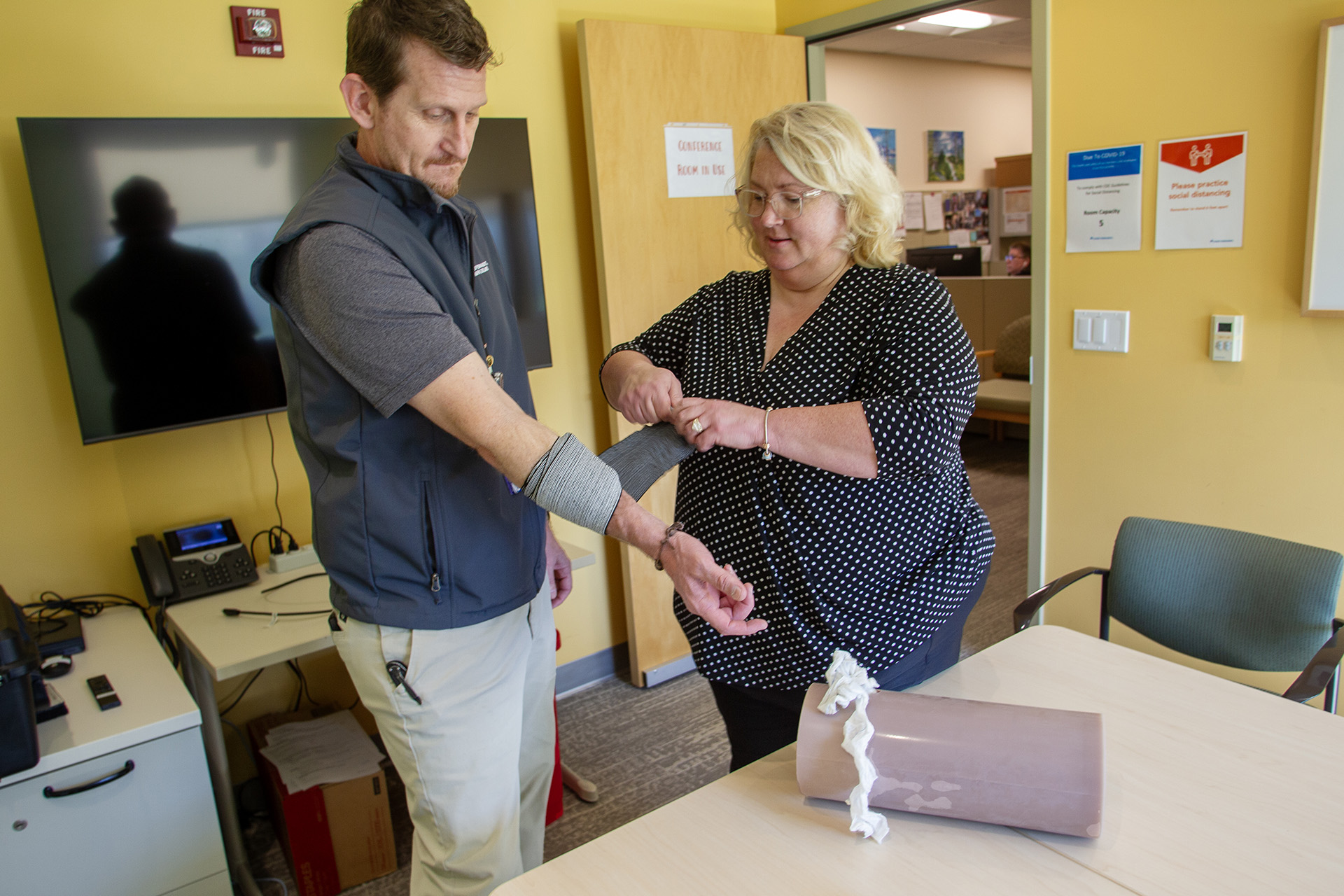
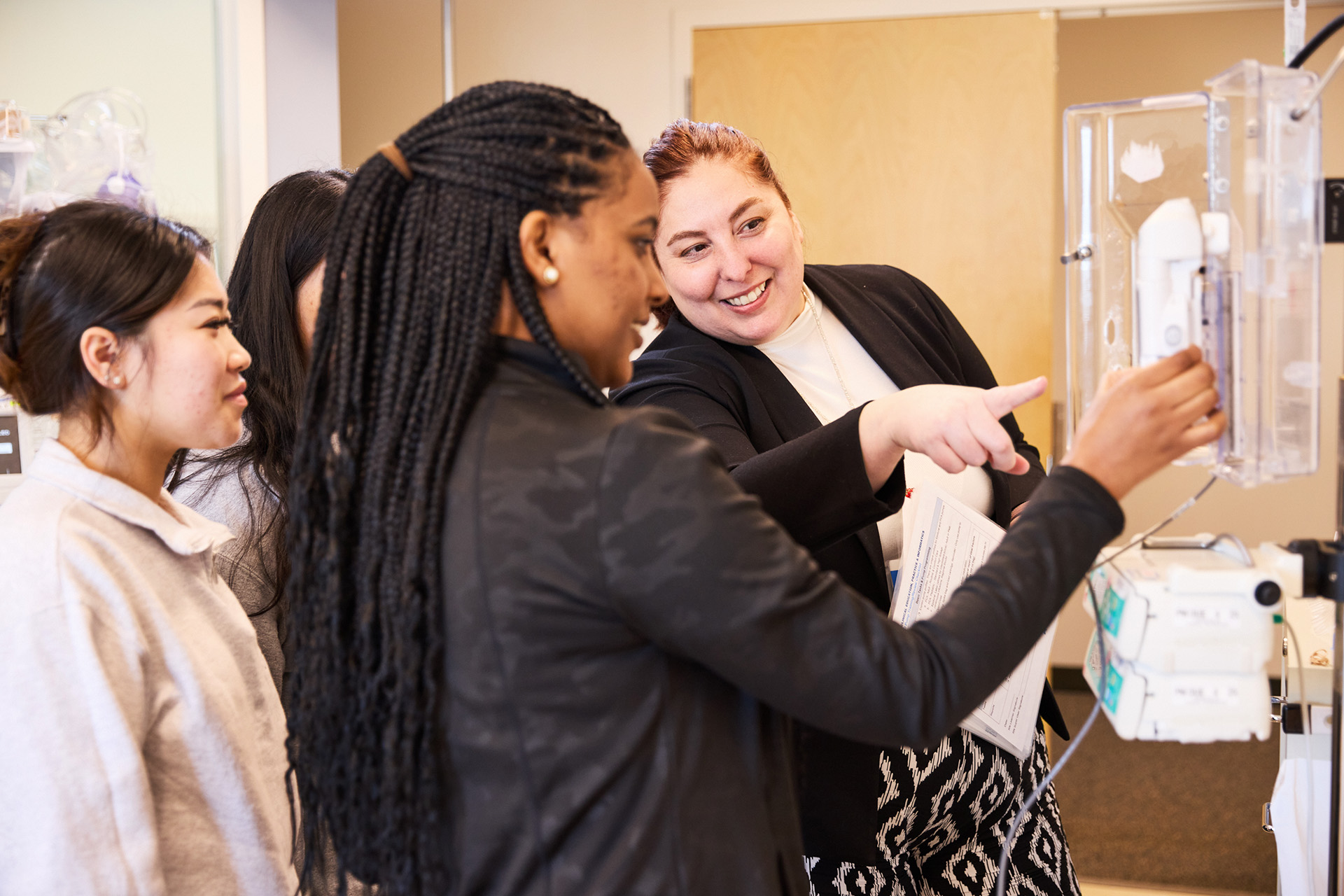
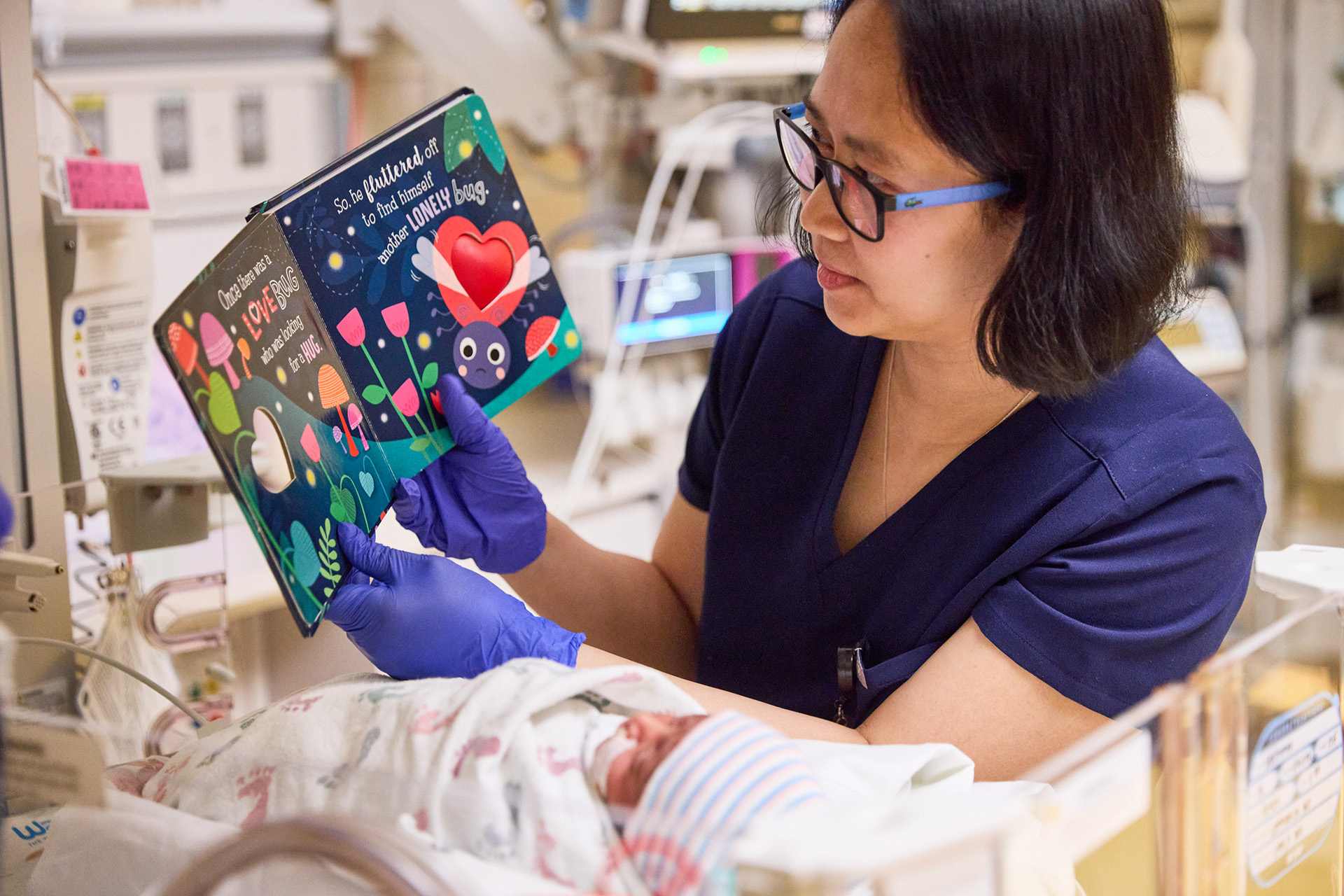

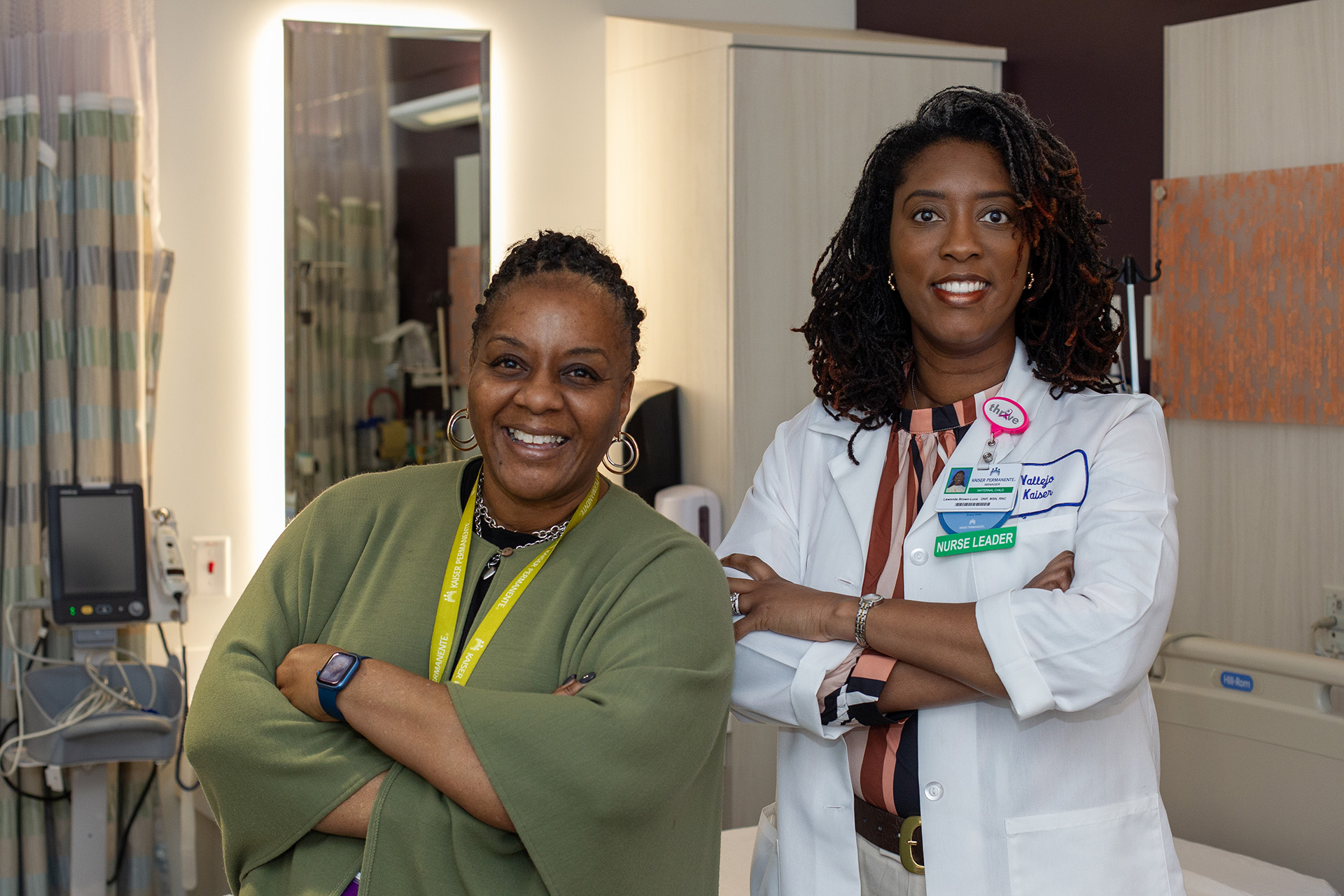
This Post Has 2 Comments
How to volunteer?
Thanks!
Hello,
Kaiser Permanente is not taking volunteers at this time for its Stop the Bleed training, but you can check the Stop the Bleed website for any opportunities outside of Kaiser Permanente. https://www.stopthebleed.org